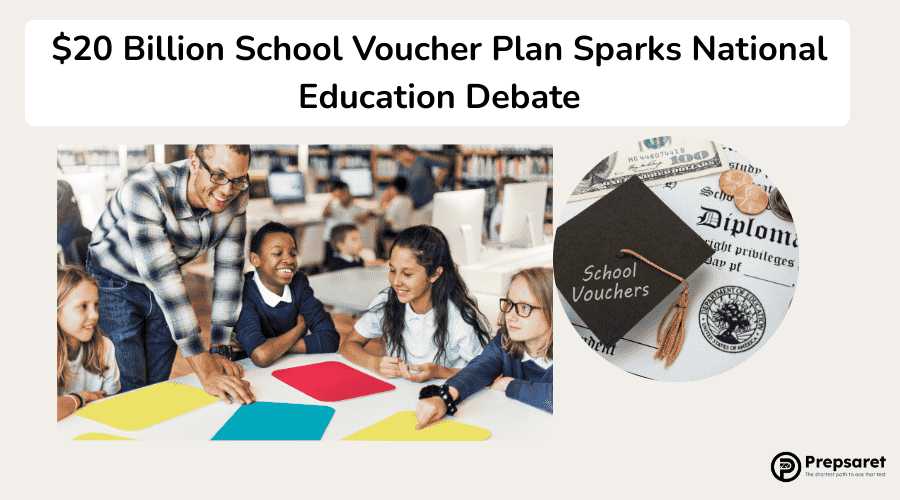Highlights:
- Historic Federal Voucher Initiative: A proposed $20 billion federal school voucher program aims to expand private education access nationwide, marking a significant shift in U.S. education policy.
- Tax Incentives for Donors: The plan offers dollar-for-dollar federal tax credits to donors contributing to Scholarship Granting Organizations (SGOs), potentially benefiting wealthy individuals through tax shelters.
- Concerns Over Public School Funding: Critics argue the initiative could divert essential funds from public schools, impacting resources for the majority of students.
- Implications for Students with Disabilities: Advocates warn that private schools may not provide the same protections and services mandated in public schools for students with disabilities.
- Mixed Evidence on Academic Outcomes: Research presents varied results on the effectiveness of voucher programs, with some studies indicating potential drawbacks in student achievement.
In a landmark move, House Republicans have advanced a proposal to establish the United States’ first federal school voucher program, allocating $20 billion over four years to support private education through tax incentives.
This initiative, embedded within a broader budget reconciliation bill, seeks to provide families across all 50 states with greater educational choices beyond the public school system.
Structure and Funding Mechanism
The proposed program would utilize the federal tax code to encourage donations to Scholarship Granting Organizations (SGOs). Donors would receive a dollar-for-dollar federal tax credit for their contributions, a benefit more generous than typical charitable deductions.
This mechanism is designed to incentivize private funding for private school scholarships, potentially reducing federal tax revenues by an estimated $134 billion over the next decade.
Supporters’ Perspective
Proponents argue that the voucher program empowers parents, particularly those in underperforming school districts, by providing alternatives to traditional public schools.
Senator Bill Cassidy (R-La.) stated, “Expanding President Trump’s tax cuts is about preserving the American Dream. Giving parents the ability to choose the best education for their child makes the dream possible.”
Advocates also highlight that the program is not limited to low-income families; households earning up to 300% of the area’s median income would be eligible, broadening access to private education.
Find Out: How to Get Loans for GED Classes & College
Critics’ Concerns
Opponents caution that diverting federal funds to private education could undermine public schools, which serve approximately 90% of U.S. students.
Becky Pringle, President of the National Education Association, warned that vouchers “weaken public education and limit opportunities for students.”
Furthermore, disability rights advocates express concern that private schools are not bound by the same federal requirements as public schools to provide appropriate education for students with disabilities.
Jacqueline Rodriguez, CEO of the National Center for Learning Disabilities, emphasized that families might mistakenly believe their children would retain the same rights in private institutions, which is not guaranteed.
Academic Outcomes and Research
Studies on existing state-level voucher programs present mixed results. Research indicates that while some students benefit from increased access to private education, others experience declines in academic achievement, particularly in mathematics.
Josh Cowen, a professor at Michigan State University, noted that larger and more recent voucher programs have shown “worrying results for students.”
<<How to Get a GED in Michigan>>
Legislative Outlook
The voucher proposal’s inclusion in the budget reconciliation bill allows it to bypass the typical 60-vote threshold in the Senate, requiring only a simple majority for passage.
Given the current political composition, the bill has a plausible path forward, though it faces significant opposition from various education and civil rights organizations.
As the debate continues, stakeholders from all sides are closely monitoring the potential implications of this federal voucher program on the American education landscape.
Also in the news:

